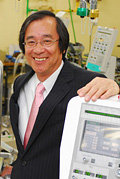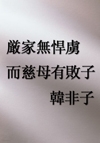|
Support of translation into English:
When you write the inquiry or the answer, this site can support the use of the charge-free translation site where a certain mother language is translated into English, though the Environmental Plazas are English.
Forerunner cordiality
|
A supporting message for international students: Mr. Tran Ngoc Phuc: Kazufuku Nitta (Metran Co, Ltd.) I interviewed Mr. Tran Ngoc Phuc (Kazufuku Nitta, his Japanese name). Mr. Phuc first came to Japan as a foreign student from Vietnam. After graduating from University, he entered a medical instrument maker as a trainee. Later on, Mr. Phuc established Metran Co, Ltd. and strived for the development of High-Frequency Oscillatory (HFO) mechanical ventilators for newborn and premature babies. Through his efforts, he has won solid trust in the medical treatment community. I interviewed Mr. Tran Ngoc Phuc (Kazufuku Nitta, his Japanese name). Mr. Phuc first came to Japan as a foreign student from Vietnam. After graduating from University, he entered a medical instrument maker as a trainee. Later on, Mr. Phuc established Metran Co, Ltd. and strived for the development of High-Frequency Oscillatory (HFO) mechanical ventilators for newborn and premature babies. Through his efforts, he has won solid trust in the medical treatment community.After the graduating high school in Saigon, I (Tran Ngoc Phuc) visited Japan as a foreign student in 1968. After I graduated from university, I received a fellowship from The Asian Students Cultural Association and joined a medical equipment manufacturer (Senko Medical Instrument mfg) as a trainee. Mr. Aoki, the president of the company I worked for, often let me be engaged in development and production procedures for various products, because he said it would be useful experience for me when I went back to Vietnam. I often talked with my Japanese wife, Mitsuko, who I married around that time, about our dream of starting a business in Vietnam. In the beginning, I could communicate with my parents in Vietnam via telephone. As time went on, the Vietnam War had intensified, and there came a time when I was no longer able to contact my family in Saigon (currently Ho Chi Minh City) at all. The media reported a large number of dead people due to the war. I lost all trace of my family in Vietnam, and I didn’t know whether or not they were still alive. I was pushed deeper and deeper into an abyss of despair by the media reports that I watched every day. In those days, I consciously avoided being near windows in tall buildings and avoided walking on station platforms because I was afraid that I might choose death out of desperation. I could not go back to work for a month, but I was encouraged by so many people and I decided to stay in Japan and continue working. When looking for a work theme, I decided that I should do something that only I could do. When I told the president of our company that I want to develop an artificial respirator, he told me that I should engage in sales while still working on developing the artificial ventilator. He also told me that when meeting with medical personnel, it might be unusual that a man with foreign a language business card, especially Vietnamese, would come as a sales staff. The doctors and researchers I met had an interest in me and they often gave me a lot of advice and they were kind to me. I played a roll like panda which can attract people. With the extreme state where I could no longer contact my family, along with my new working environment, I told myself that my old self had gone, and I worked hard as if I had been reborn. In 1984, I persuaded my wife to help me create Metran Co, Ltd. with my retirement money and contributions from my friends. In pursuit of my dream to improve the survival rate of premature babies, I strived for the development of HFO mechanical ventilators, which are gentle to the lung of premature babies. ----I think you owe the connection with many people, but how is your attitude when you meet someone the first time? ---- “To give to others first, not to not expect anything in return.” I was asked by Dr. Phuong to be her interpreter and also to help her with my expertise on medical equipment, when she came to Japan as the doctor in charge of treatments for the conjoined twins of Nguyen Viet and Doc. The twins were born with their lower half of the bodies conjoined because of the Agent Orange that was spread by the U.S. army. This event along with strong encouragement by Dr. Phuong brought me back to my native country, Vietnam, in 1986, for the first time in 18 years, and I finally met my family who I had not been able to see for such a long time. Vietnam was no longer what it used to be, when I returned there. My family in Vietnam had also lost everything they had owned. We had to find the means to survive. Being filled with a sense of mission as the oldest son in my family, I brought my younger brothers and younger sister to Japan in order to let them have technical training in medical and food-related fields. Those brothers and sister returned to Vietnam and fortunately started their own business later on. They also deepened their ties to Japan. The spirit of looking after our own family and helping each other is common to all the East Asian countries including Japan, isn't it? Currently I sell ventilators around the world. I'll try to expand my businesses as my main objective to protect "the life". Needless to say, I have Vietnam's future potential in mind.
“I believe that we can find a way, when we do our best as if we were dead.” I left for home thinking about the ancient “Ocean Silk Road”. Those unknown routes, I think, were probably opened up by Vietnamese who have challenging spirits like Mr. Phuc. Mr. Tran Ngoc Phuc: (Kazufuku Nitta) Selected as one of METI’s 300 of Japan’s exciting Monozukuri (manufacturing) SMEs (2007) http://www.metran.co.jp/en/index.html |


